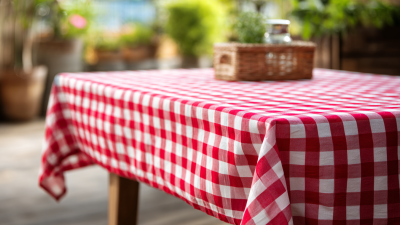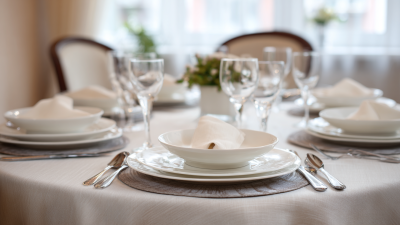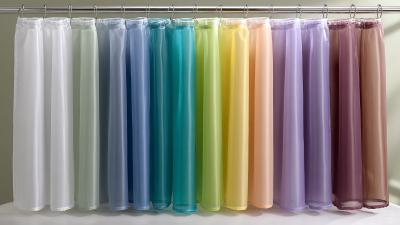As sustainability continues to gain traction in the home goods industry, the 138th China Import and Export Fair in 2025 serves as a pivotal platform for showcasing innovative Eco-friendly materials in various products, particularly shower curtains.
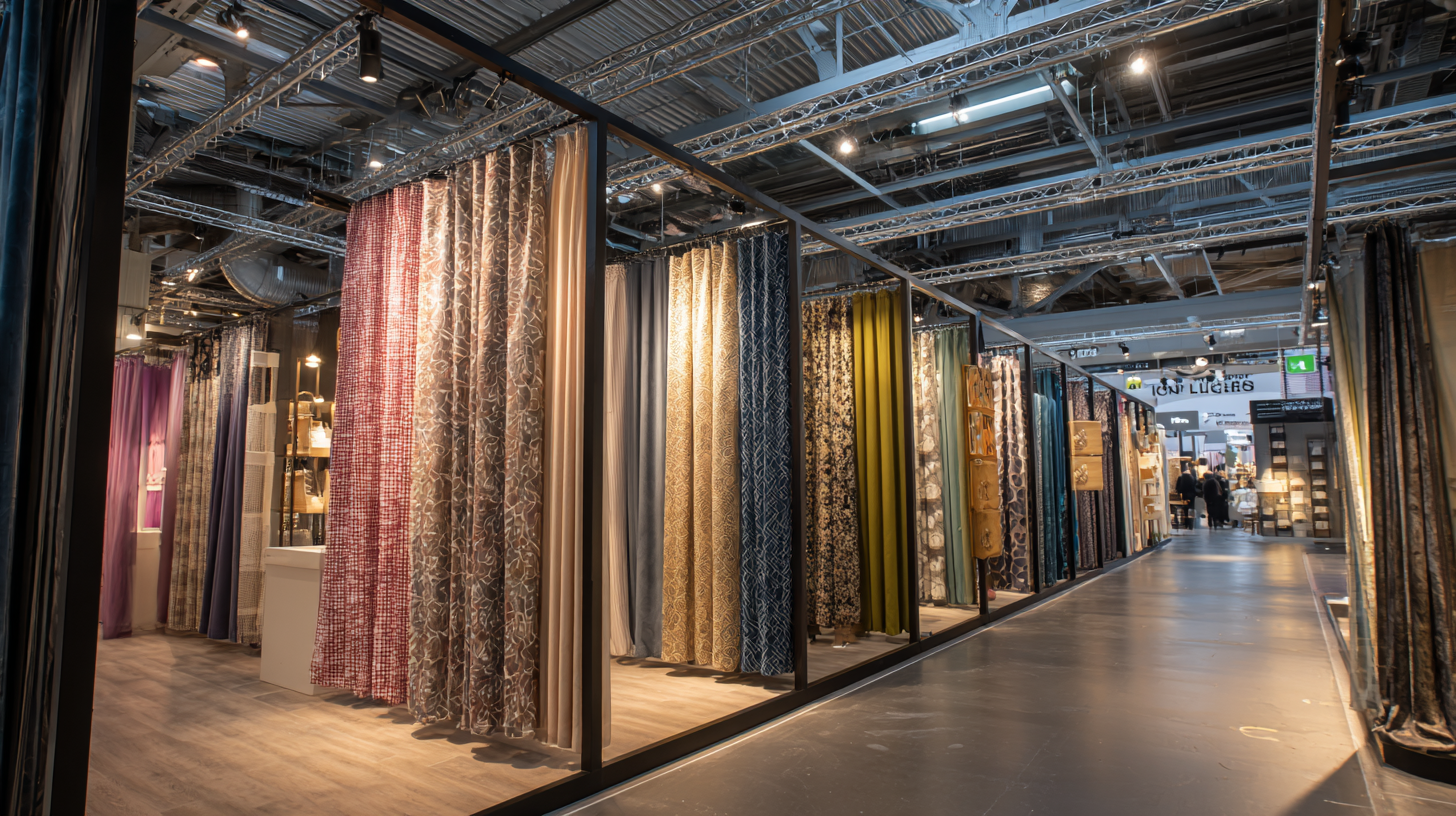 The global market for shower curtains is projected to reach USD 1.7 billion by 2026, growing at an impressive CAGR of 5.9%. With increasing consumer awareness regarding environmental impact, the demand for "Shower Curtain Eco" options is on the rise.
According to a recent industry report, approximately 30% of consumers are now willing to invest more in sustainable home textiles, reflecting a significant shift towards eco-conscious purchasing behaviors.
This trend not only emphasizes the importance of using non-toxic and biodegradable materials but also highlights the role of innovation in developing eco-friendly alternatives that can enhance consumer health and wellbeing while reducing ecological footprints.
As a focal point of the fair, industry leaders and innovators will present their latest advancements, emphasizing the importance of sustainability in home decor.
The global market for shower curtains is projected to reach USD 1.7 billion by 2026, growing at an impressive CAGR of 5.9%. With increasing consumer awareness regarding environmental impact, the demand for "Shower Curtain Eco" options is on the rise.
According to a recent industry report, approximately 30% of consumers are now willing to invest more in sustainable home textiles, reflecting a significant shift towards eco-conscious purchasing behaviors.
This trend not only emphasizes the importance of using non-toxic and biodegradable materials but also highlights the role of innovation in developing eco-friendly alternatives that can enhance consumer health and wellbeing while reducing ecological footprints.
As a focal point of the fair, industry leaders and innovators will present their latest advancements, emphasizing the importance of sustainability in home decor.
The 138th China Import and Export Fair 2025 showcases remarkable advancements in eco-friendly shower curtain solutions, highlighting innovative materials and technologies that cater to the growing demand for sustainable products. Recent industry reports indicate that the global market for eco-friendly home textiles, including shower curtains, is projected to reach $37 billion by 2026, growing at a compound annual growth rate (CAGR) of 5.9%. This surge is primarily driven by increased consumer awareness regarding environmental issues and a shift towards sustainable living.
At the fair, a diverse array of materials designed to minimize environmental impact was on display. Brands are increasingly adopting recycled polyethylene terephthalate (rPET) and organic cotton, which not only reduce waste but also enhance the biodegradability of shower curtains. Additionally, advancements in water-repellent technologies and non-toxic treatments ensure that these products maintain functionality while prioritizing health and safety. According to a recent study, approximately 70% of consumers are willing to pay more for eco-friendly products, underscoring a significant market shift towards sustainable options. As manufacturers continue to innovate in this space, the potential for eco-friendly shower curtains to redefine bathroom aesthetics while promoting sustainable practices is promising.
| Innovation Type | Material | Sustainability Rating | Technology Used | Price Range (USD) |
|---|---|---|---|---|
| Biodegradable Shower Curtains | PLA (Polylactic Acid) | A+ | Natural Fibers Weaving | 15 - 25 |
| Recycled PET Shower Curtains | Recycled Plastic Bottles | A | 3D Printing Technology | 20 - 30 |
| Organic Cotton Shower Curtains | Organic Cotton | A++ | Eco-Friendly Dyes | 30 - 50 |
| Water-Repellent Bamboo Shower Curtains | Bamboo Fibers | A | Nano Coating Technology | 25 - 40 |
| Non-Toxic PVC Alternatives | TPE (Thermoplastic Elastomer) | B+ | Innovative Molding | 20 - 35 |
The bathroom accessory market is experiencing significant growth, driven by sustainable design trends and increasing urbanization. According to a recent report, the U.S. plumbing fixtures and fittings market is expected to expand notably due to rising construction activities and advancements in water-saving technologies. Furthermore, as consumers become more environmentally conscious, the demand for eco-friendly products, including shower curtains, is on the rise. This shift not only reflects a growing preference for sustainability but also indicates a broader trend towards creating rejuvenating spaces within the home.
In line with these trends, the global towel market is projected to increase from $11.89 billion in 2025 to $16.59 billion by 2032. The emphasis on eco-friendly materials, such as organic cotton and recycled textiles, underscores consumer interest in reducing their carbon footprint. The 138th China Import and Export Fair in 2025 promises to showcase innovative products that align with these sustainability trends, offering a glimpse into the future of bathroom accessories designed with both beauty and functionality in mind. As these developments unfold, the intersection of aesthetics, emotional resonance, and sustainable practices will play a pivotal role in shaping the future of bathroom designs.
As consumer preferences shift towards sustainable living, the market for eco-friendly products continues to expand. The growing demand for environmentally conscious items is evident in various sectors, including the household and fashion industries. For instance, the sheep wool market is projected to reach $24.8 billion by 2032, indicating a compound annual growth rate of 5.91%. Similarly, the linen clothing market is expected to grow from $553.45 million in 2025 to $737.56 million by 2033, highlighting a steady interest in natural materials.
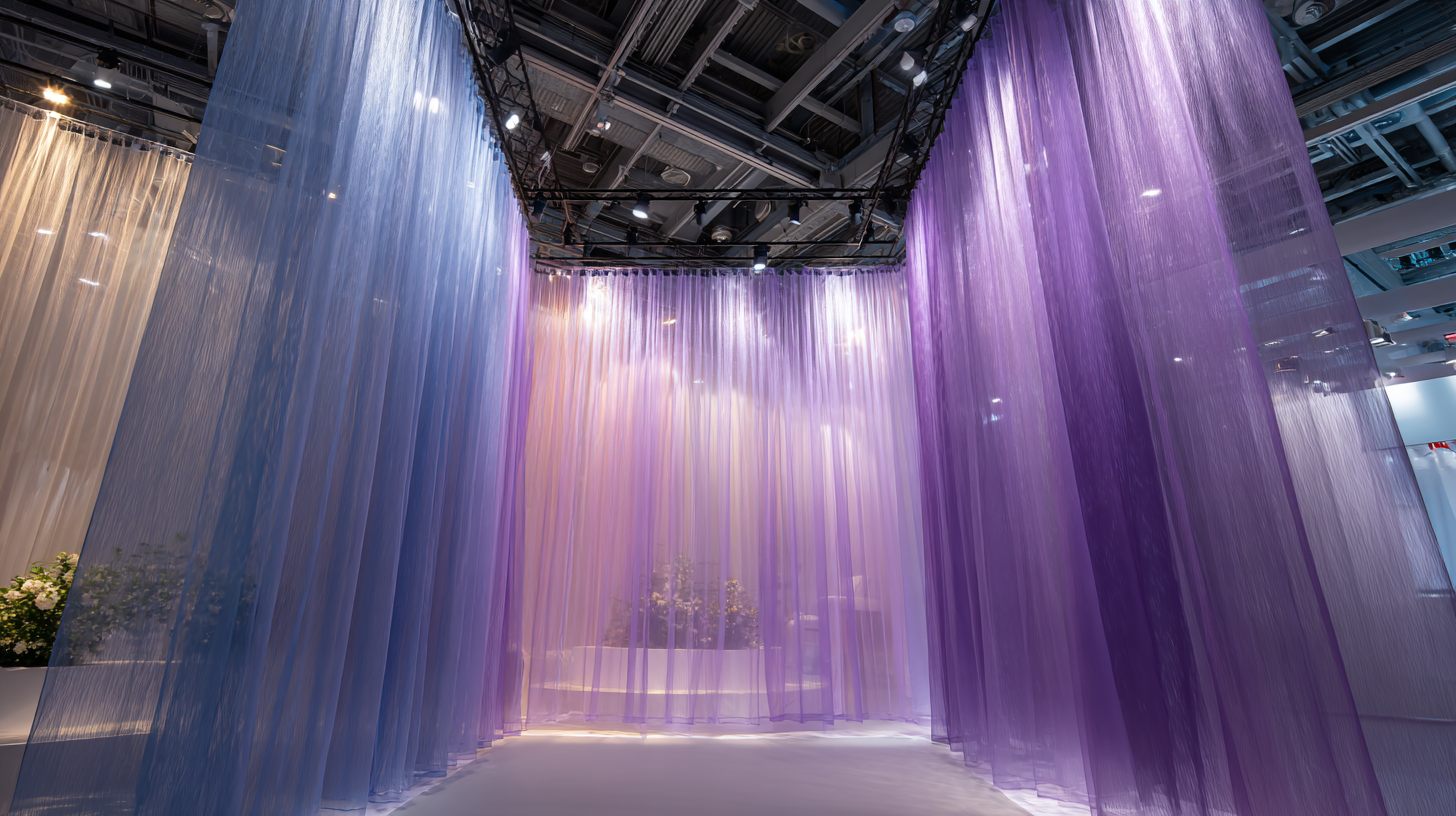
Tips: When selecting eco-friendly products, consider materials that are biodegradable and ethically sourced. Look for certifications that verify the product's environmental impact, ensuring that your choices contribute to sustainability. Additionally, explore brands that prioritize eco-conscious practices in their operations, as this can amplify your positive impact.
Furthermore, the rise of eco-friendly innovations, such as biodegradable shower curtains, reflects a broader trend toward sustainability in daily life. With consumers increasingly willing to invest in eco-conscious solutions, brands that prioritize environmental responsibility are likely to capture a significant market share in the coming years. By embracing these innovations, consumers can significantly reduce their ecological footprint while enhancing their living spaces.
The upcoming 138th China Import and Export Fair in 2025 promises to be a significant platform for showcasing eco-friendly innovations, particularly in the shower curtain segment. Leading brands will present their latest sustainable products, highlighting the importance of environmental responsibility in everyday items. These exhibitors are not just focusing on aesthetics but are also pioneering materials that minimize environmental impact, such as organic cotton and recycled plastics. Visitors can expect to see products that combine both functionality and sustainability.
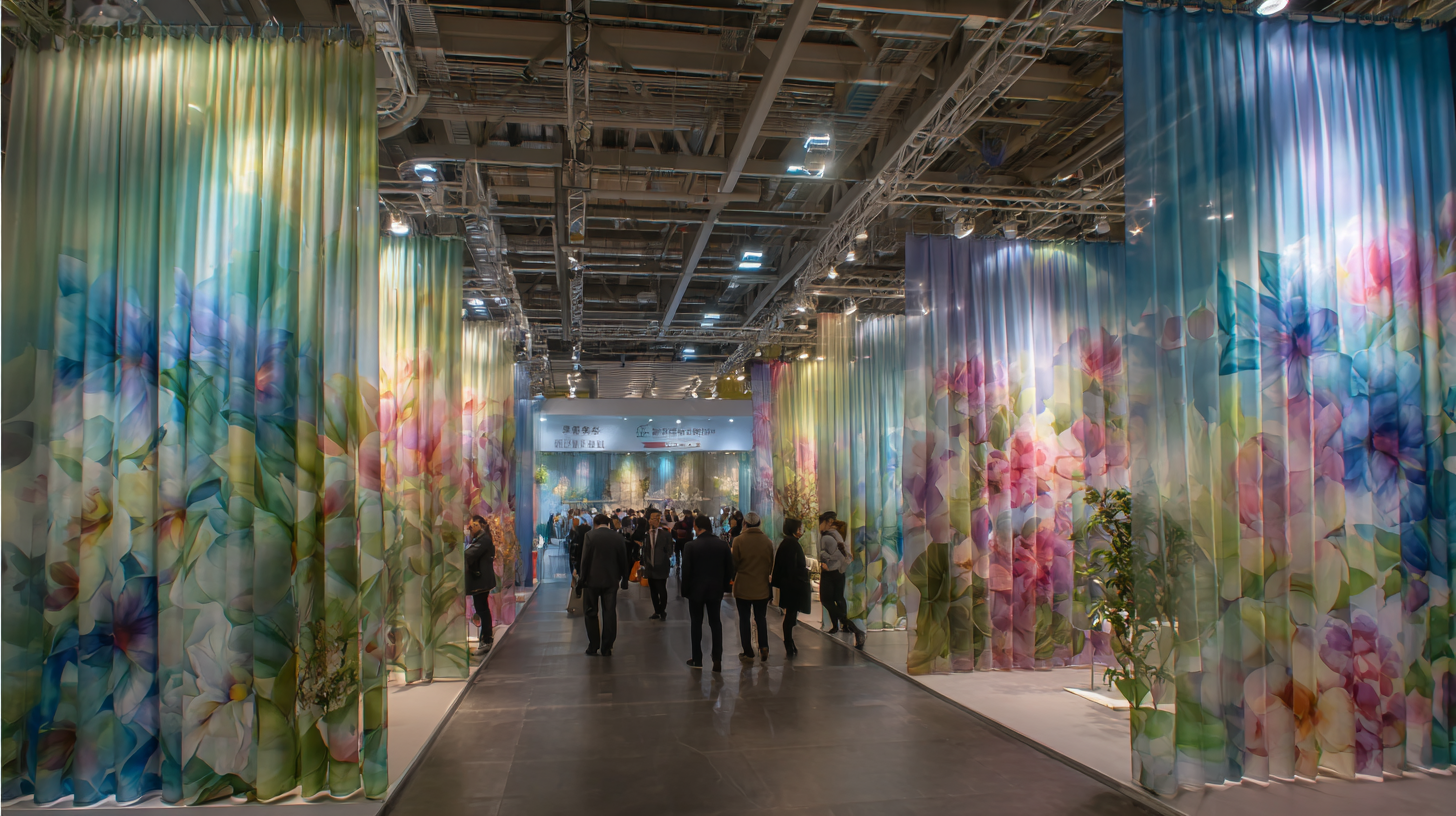
Tips for selecting eco-friendly shower curtains include considering the material and manufacturing processes. Look for curtains made from materials that are free from harmful chemicals and dyes. Additionally, check for certifications that indicate sustainability, such as OEKO-TEX certification. Opting for curtains with a longer lifespan can also contribute to reducing waste.
In addition to material choices, design plays a crucial role in enhancing the eco-friendliness of shower curtains. Brands at the fair will exhibit innovative designs that reduce water usage during cleaning and drying. Keep an eye out for multifunctional options that not only serve as curtains but also offer ventilation and odor-resistant properties. By making informed choices, consumers can embrace greener living while upgrading their bathroom decor.
The market for eco-friendly home products, particularly in the realm of smart home technology, is poised for substantial growth in the upcoming years. A recent analysis indicates that the humidifier market is estimated to reach approximately $23.26 million by 2025 and is projected to grow to around $34.81 million by 2033. This surge is reflective of a broader trend towards sustainability and health-conscious living, as consumers become increasingly aware of the environmental impact of their purchases.
China's emergence as the largest consumer of smart home products globally, capturing 50% to 60% of the market, further underscores the potential for eco-friendly innovations at trade shows like the 138th China Import and Export Fair. Experts suggest that advancements in artificial intelligence and the integration of eco-friendly materials into product designs will underpin the future of home goods. As the demand for clean, sustainable household products rises, the showcasing of innovative shower curtains and similar items at trade exhibitions represents not just a trend, but a shift towards a more sustainable lifestyle that resonates with informed consumers.


